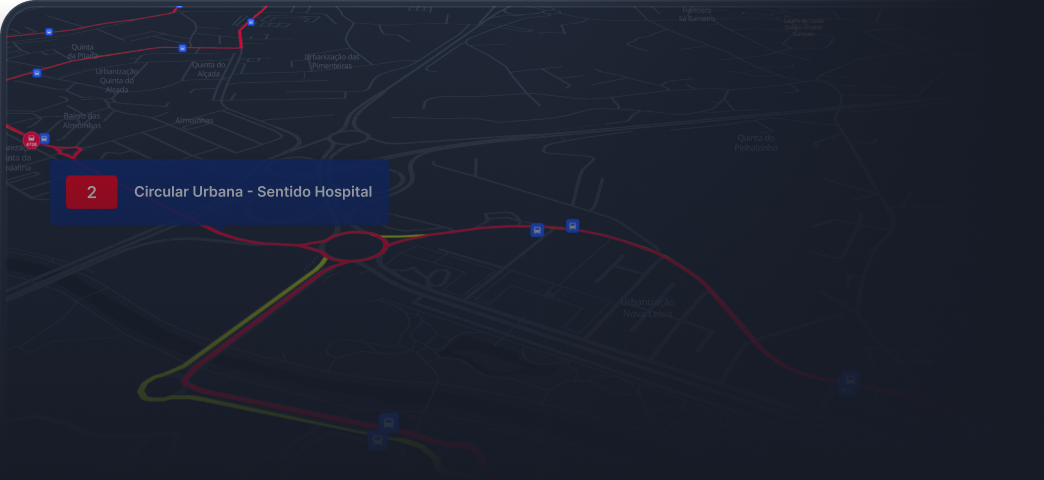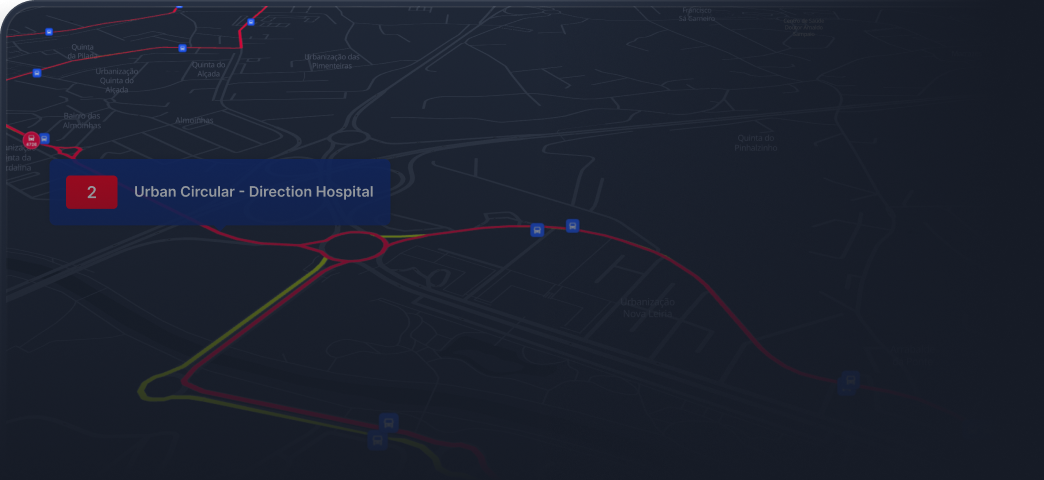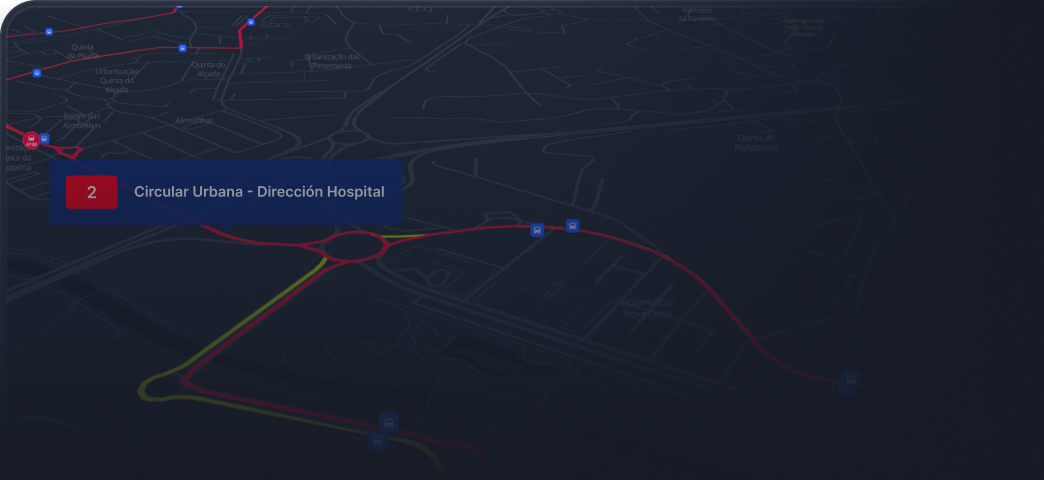Interoperability, the Key to Truly Smart Cities by Karl-Filip Coenegrachts
Discover why interoperability is essential to delivering more efficient and accessible urban services.

With a career rooted in digital innovation and urban transformation, Karl-Filip Coenegrachts has been a leading advocate for interoperability in smart cities. As Chair of the Board and Executive Director at OASC (Open & Agile Smart Cities & Communities), he plays a pivotal role in fostering a more connected urban ecosystem.
In this conversation, held during the 1st Smart Cities Portugal Conference on 27 March 2025, Karl-Filip shares the impact of OASC on Urban Management Platforms and explains why interoperability is a fundamental pillar for the future of smart cities.
"Interoperability goes beyond technology. It is also organisational, legal, and semantic."

Karl-Filip Coenegrachts
Chair & Executive Director of OASC
UW: Can you tell us about OASC’s role in urban management platforms and how it has influenced the architecture we use today?
KC: What is crucial for OASC is that in every development of a data platform, urban platform, or local digital twin, interoperability is taken into account. And interoperability is not just something technical. It is to a certain extent technical. You have to define all the technical requirements that are needed to ensure minimal interoperability between the data and the digital systems that are part of an urban platform.
But interoperability goes beyond technology. It is also organisational, legal, and semantic. So that is what OASC is standing for. OASC is making use of the experiences of its members all around the world to define the so-called “Minimal Interoperability Mechanisms” (MiMs). These mechanisms contain not only technical requirements but also the standards that are in use and that are open to ensure minimal interoperability between systems.
UW: How would you explain the importance of interoperability to someone unfamiliar with the concept? Could you simplify it and highlight how it benefits citizens?
KC: As a citizen, you’ve probably travelled to another city. In your own city, you might use a certain app on your phone or laptop to communicate with your local government, access city information, and so on. But when you travel to another city, you have to download another app. And that new app does not necessarily contain the same information, does not use the same, for instance, payment features as the app that you are using in your city.
Wouldn’t it be much better to have that same app in use wherever you go? And the fact that you can use that same app, would mean that in the back office interoperability is ensured. Interoperability ensures that there’s a seamless connection between data in the background, without you as a user have to act upon it by, for instance, downloading another app.
Portal Público
Inclui funcionalidades que proporcionam uma experiência interativa e transparente, promovendo a participação cidadã, tais como:
▪︎ Visualização do estado da cidade em tempo real
▪︎ Inquéritos à população
▪︎ Interação com os cidadãos (Reporte de Ocorrências)
▪︎ Capacidade de integração com outros serviços do território
▪︎ Formulário de contacto
Inteligência Artificial
Potencia a acessibilidade e a análise avançada de dados, permitindo uma interação mais intuitiva, através de:
▪︎ Chatbot de apoio à compreensão dos dados
▪︎ Criação de novas visualizações com base em dados armazenados no Data Lake
▪︎ Capacidade de envio das visualizações por email
▪︎ Integração com LLM
▪︎ Integração nativa na plataforma
▪︎ Capacidade de instalação on-prem e em cloud
Portal de Dados Abertos
Promove a transparência e a inovação através das suas funcionalidades, incluindo:
▪︎ Disponibilização de dados abertos à população
▪︎ Criação de ecossistema de Open Data
▪︎ Plug-ins de rápida visualização
▪︎ Criação de ecossistema de inovação
▪︎ Federado com a Plataforma de Gestão Urbana
Aplicação do Cidadão
Oferece aos cidadãos um acesso prático e intuitivo a informações em tempo real sobre a cidade, permitindo uma participação ativa na gestão urbana, através de:
▪︎ Inquéritos à população
▪︎ Interação com os cidadãos
▪︎ Formulário de contacto
▪︎ Reporte de Ocorrências
▪︎ Federado com a Plataforma de Gestão Urbana
Citizen App
Offers citizens practical and intuitive access to real-time city information, enabling active participation in urban management through:
▪︎ Public surveys
▪︎ Citizen interaction
▪︎ Contact form
▪︎ Incident reporting
▪︎ Federated with the Urban Management Platform
Open Data Portal
Promotes transparency and innovation through functionalities including:
▪︎ Open data availability for the public
▪︎ Development of an Open Data ecosystem
▪︎ Quick visualisation plug-ins
▪︎ Creation of an innovation ecosystem
▪︎ Federated with the Urban Management Platform
Aplicación del Ciudadano
Ofrece a los ciudadanos un acceso práctico y intuitivo a información en tiempo real sobre la ciudad, lo que les permite participar activamente en la gestión urbana a través de:
▪︎ Encuestas a la población
▪︎ Interacción con los ciudadanos
▪︎ Formulario de contacto
▪︎ Notificación de Incidencias
▪︎ Federado con la Plataforma de Gestión Urbana
Artificial Intelligence
Enhances accessibility and advanced data analysis, enabling more intuitive interaction through:
▪︎ Chatbot support for data comprehension
▪︎ Creation of new visualisations based on stored Data Lake information
▪︎ Ability to send visualisations via email
▪︎ Integration with LLM
▪︎ Native platform integration
▪︎ On-premise and cloud deployment options
Public Portal
Includes features that provide an interactive and transparent experience, promoting citizen engagement, such as:
▪︎ Real-time city status visualisation
▪︎ Public surveys
▪︎ Citizen interaction (Incident Reporting)
▪︎ Integration with other territorial services
▪︎ Contact form
Portal de Datos Abiertos
Promueve la transparencia y la innovación mediante funciones entre las que se incluyen:
▪︎ Acceso a datos abiertos para la población
▪︎ Creación de un ecosistema de Open Data
▪︎ Plug-ins para visualización rápida
▪︎ Creación de un ecosistema de innovación
▪︎ Federado con la Plataforma de Gestión Urbana
Portal Público
Incluye funcionalidades que proporcionan una experiencia interactiva y transparente, promoviendo la participación ciudadana, tales como:
▪︎ Visualización en tiempo real del estado de la ciudad
▪︎ Encuestas a la población
▪︎ Interacción con los ciudadanos (Notificación de Incidencias)
▪︎ Capacidad de integración con otros servicios del territorio
▪︎ Formulario de contacto
Inteligencia Artificial
Potencia la accesibilidad y el análisis avanzado de datos, lo que permite una interacción más intuitiva mediante:
▪︎ Chatbot de apoyo para la comprensión de los datos
▪︎ Creación de nuevas visualizaciones basadas en datos almacenados en Data Lake
▪︎ Envío de visualizaciones por correo electrónico
▪︎ Integración con LLM
▪︎ Integración nativa en la plataforma
▪︎ Capacidad de instalación on-premise y en la cloud
Receba a brochura da Plataforma de Gestão Urbana
Fique a conhecer as funcionalidades e componentes que ajudam a gerir os territórios de forma mais inteligente. Preencha o formulário para pedir acesso à brochura.









